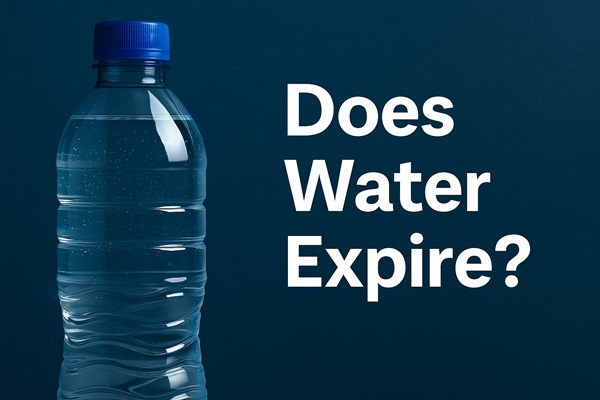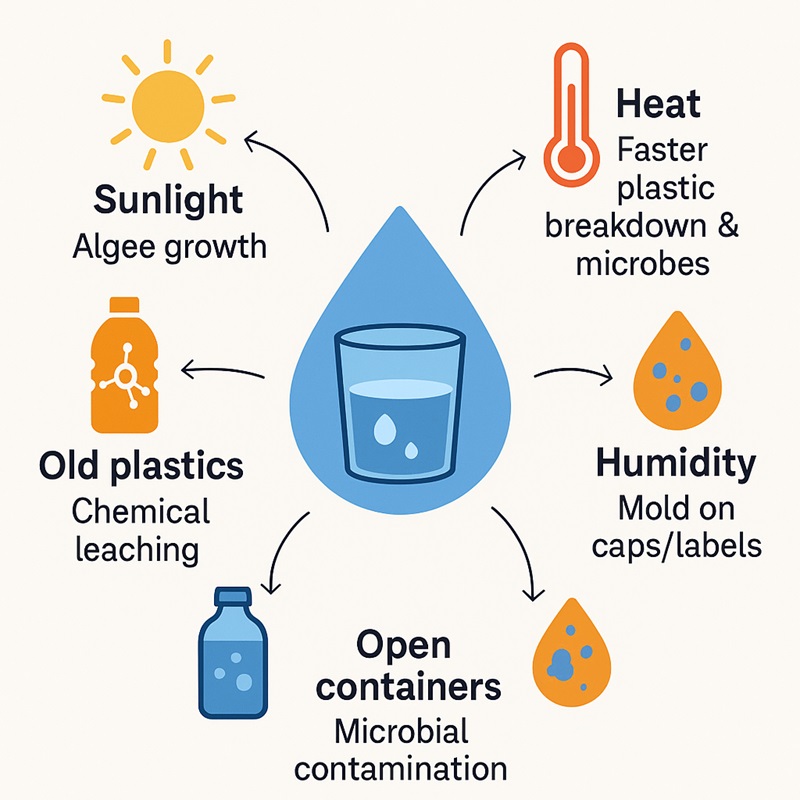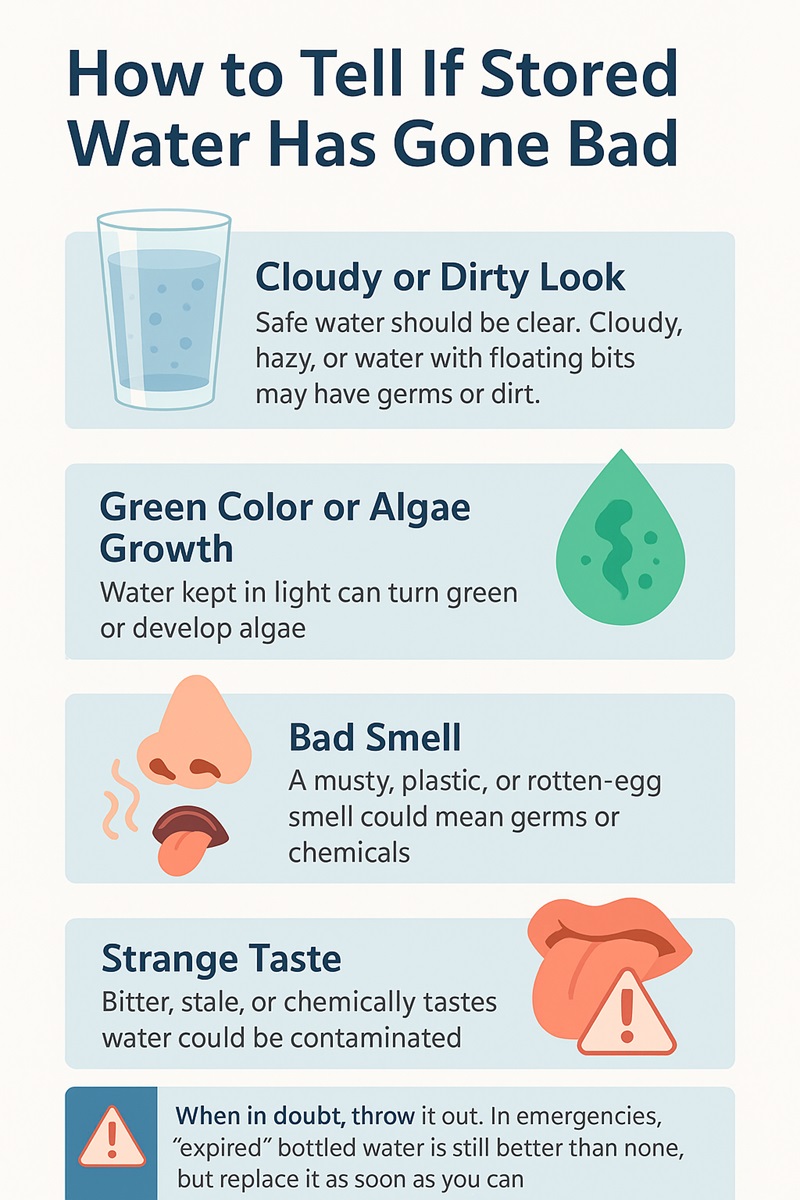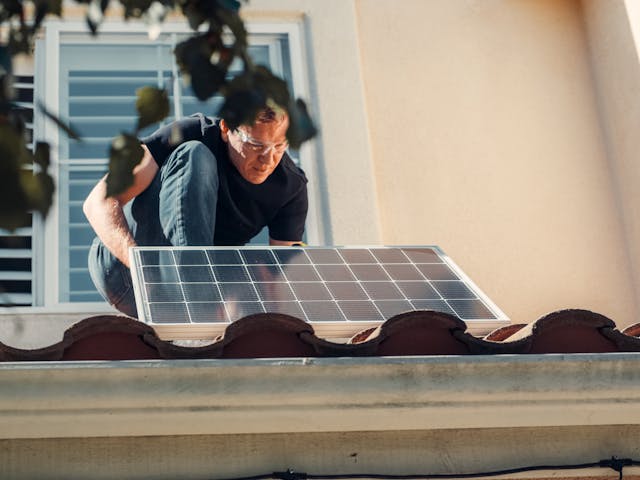Quick Answer: Does Water Expire?
Water itself never goes bad. But bottled or stored water can turn unsafe if kept too long.
- Unopened bottled water is best within 2 years.
- Opened bottles should be finished in 2–3 days.
- Over time, plastic containers may leak chemicals into the water.
- Once opened, water can grow bacteria and other microbes.
Smart storage matters. Keep bottles sealed, away from sunlight, and in cool, dry places to stay safe.
Why Ask “Does Water Expire?”
Water feels timeless — it’s been on Earth for billions of years — yet the gallon jug in your pantry or case of bottles in the garage won’t stay fresh forever. The question isn’t whether water molecules go bad, but whether packaging, storage conditions, and exposure to contaminants make your drinking water unsafe.
This article explains:
- The science of water’s shelf life.
- How plastic packaging affects safety.
- When microbes become the bigger risk.
- Best practices for home and business water storage.
The Science: Can Pure Water Expire?
From a chemical standpoint, water is stable and doesn’t break down with time. H₂O doesn’t suddenly “go bad.”
So why do bottles carry expiration dates? The answer lies in external factors:
- Packaging degradation — especially plastic.
- Sunlight and heat exposure — which accelerate chemical leaching.
- Microbial contamination — after a seal is broken.
Think of it this way: distilled water in a sterile, airtight glass bottle could remain safe for years. But that’s rarely how water is stored in everyday life.
Bottled Water: Packaging and Plastic Leaching
Why Bottled Water Has a “Best By” Date
The FDA doesn’t require expiration dates on bottled water. Still, most brands add them — usually 2 years from bottling — to account for packaging integrity, not the water itself.
The Role of Plastic
Most bottled water comes in PET (polyethylene terephthalate) bottles. Over time, especially when heated, chemicals migrate into the water:
- Antimony — linked to stomach irritation at high levels.
- Microplastics — particles shed from the container.
- BPA and phthalates — endocrine disruptors (mainly in older or poor-quality plastics).
Heat Accelerates the Problem
Leaving bottled water in a hot car or garage accelerates breakdown. A study in Environmental Pollution found bottles stored above 70°F (21°C) showed significantly higher chemical leaching.
Health Concerns
Drinking old bottled water once in a while is unlikely to make you sick. But long-term use can be risky. Over time, plastics may leak chemicals into the water. These chemicals have been linked to problems such as hormone changes, growth issues, and even certain cancers.
The safest choice is to drink fresh water stored in safe containers and avoid relying on bottles past their shelf life.
Microbial Growth: When Water Really “Goes Bad”
Opened Bottled Water
The moment you break the seal, bacteria can enter from your mouth, hands, or the air. Left at room temperature, microbes multiply quickly.
Standing Water in Containers
Reusable bottles, water coolers, and storage tanks can harbor slimy biofilms that aren’t visible but may contain harmful pathogens.
Health Risks:
- Short-term: nausea, cramps, diarrhea.
- Long-term: serious infections from bacteria like E. coli or Pseudomonas, especially for children, elderly adults, or the immunocompromised.
Unopened bottled water stored properly is safe for years, but once opened, it should be consumed within 2–3 days.
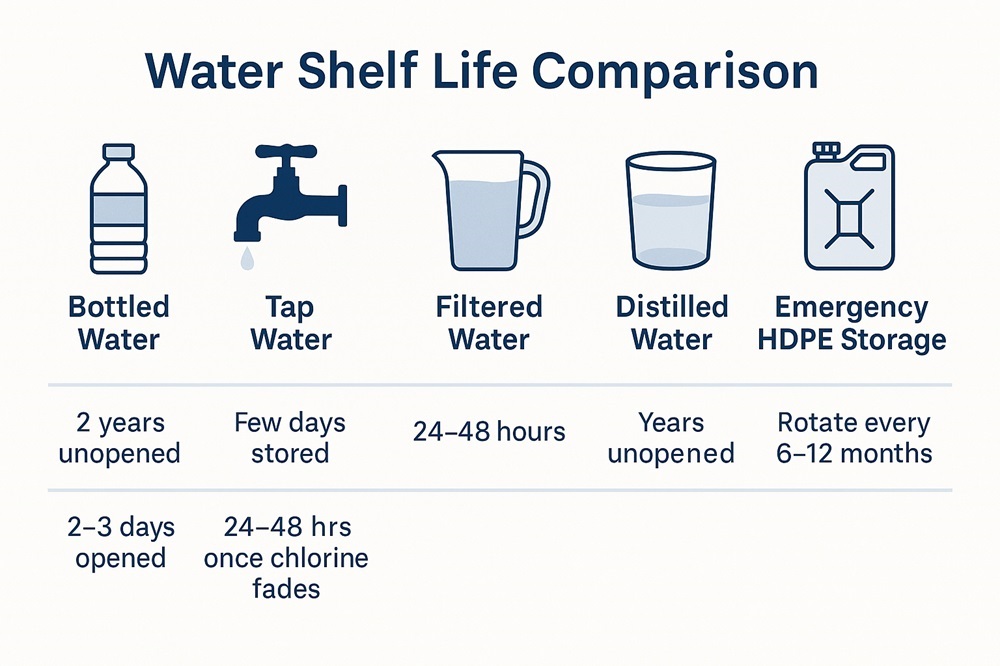
Shelf Life of Different Water Types
| Water Type | Safe Shelf Life (Unopened/Stored Properly) | After Opening / Storage | Notes |
| Bottled water | 2 years | 2–3 days | Risk of plastic leaching + microbes |
| Tap water (chlorinated) | Few days | 1–2 days | Chlorine protection fades quickly |
| Filtered water (Brita, pitcher) | N/A | 24–48 hours | Filters remove chlorine but not bacteria |
| Emergency storage (HDPE plastic) | Rotate every 6–12 months | — | FEMA recommends regular checks |
| Glass/stainless steel containers | Years | 2–3 days | Best long-term storage options |
Environmental Factors That Speed “Expiration”
Storage matters more than the printed date. Avoid these risks:
Sunlight
Direct sunlight harms stored water, especially in clear plastic bottles. UV rays can grow algae, change taste, and weaken plastic, which makes chemicals leak faster. Always store bottles in a cool, dark place.
Heat
Heat is the biggest enemy of bottled water. Warm temperatures speed up plastic breakdown, releasing chemicals like antimony and microplastics. Heat also helps germs grow in opened bottles. Keeping water in a cool, steady spot is the safest option.
Humidity
Moist areas encourage mold on caps, labels, and cardboard packaging. While mold rarely enters sealed bottles, it can spoil the hygiene of stockpiles and reusable containers. A dry, ventilated space is best for storage.
Common Problem Spots
Garages, car trunks, and warehouses often face high heat, sunlight, and shifting humidity. These places shorten the safe life of bottled water. For homes, dark pantries or basements away from heat work much better.
Safe Storage Guidelines for Home & Business
- Choose the right container: glass, stainless steel, or food-grade HDPE plastic.
- Store in a cool, dark place.
- Rotate emergency supplies every 6–12 months.
- Don’t refill disposable bottles. They degrade quickly.
FEMA recommends at least 1 gallon per person per day for emergencies, with a 2-week minimum supply.
Does Tap Water Expire?
Tap water doesn’t technically expire, but the safety window is short. While chlorine or chloramine is added during treatment to kill microbes, this protective effect fades after just a few days. Depending on where and how it’s stored, tap water can pick up new risks.
Standing Water in Pipes
If tap water sits unused in household plumbing for too long, it can absorb metals like lead, copper, or iron from the pipes. This risk is higher in older homes with outdated plumbing systems. Running the tap for a few seconds before drinking helps flush out standing water.
Stored Tap Water
When tap water is collected and stored in bottles or open containers, the chlorine protection typically lasts only 24–48 hours. After that, bacteria and other microbes may begin multiplying, especially if the container is not sealed or refrigerated.
Filtered Water
Water filtered through a pitcher or system such as Brita may taste better, but it actually spoils faster. Filters remove chlorine, which means microbes can grow unchecked once water is stored. For best results, filtered water should be consumed within one to two days.
Does Distilled Water Expire?
Distilled water is unique because it has been boiled and condensed to remove impurities, salts, and minerals. This makes it different from both tap and bottled spring water.
Shelf Life of Distilled Water
- Unopened: Properly sealed distilled water can last for years, especially if stored in glass or food-grade plastic containers. Because there are no nutrients for microbes to feed on, it remains stable much longer than ordinary bottled water.
- Opened: Once exposed to air, even distilled water can become contaminated. Dust, airborne microbes, or particles from containers can shorten its safe drinking window to just a few days.
Practical Uses Beyond Drinking
Distilled water is often stored for CPAP machines, steam irons, medical sterilization, and aquariums because it prevents mineral buildup. For these uses, purity matters even more than taste. If your distilled water looks cloudy or smells unusual, replace it to protect both health and equipment.
Takeaway: Distilled water doesn’t expire in the traditional sense, but once opened, it should be consumed or used within a few days to remain safe.
Myths vs Facts
- Myth: “Water never expires.”
Fact: The molecule doesn’t, but storage conditions can make water unsafe. - Myth: “Best by dates are just marketing.”
Fact: They exist to flag packaging breakdown, not water itself. - Myth: “Boiling old bottled water makes it safe.”
Fact: Boiling kills microbes but doesn’t remove chemicals already leached in.
How to Tell If Stored Water Has Gone Bad
Even though pure water doesn’t expire, poor storage can make it unsafe. Watch for these warning signs:
Cloudy or Dirty Look
Safe water should be clear. If it looks hazy, cloudy, or has floating bits, it may contain germs or dirt. Even if it smells fine, cloudy water is unsafe.
Green Color or Algae Growth
Water kept in light may turn green or grow algae. Algae changes the look and can carry harmful microbes. If you see green, don’t drink it.
Bad Smell
Fresh water should not smell. A musty, plastic, or rotten-egg smell often means germs or chemicals from the container. Any strange odor means the water should be thrown away.
Strange Taste
Water that tastes bitter, stale, or chemical-like may be unsafe. Even if it doesn’t make you sick right away, it shows signs of contamination.
Final Safety Tip
When in doubt, throw it out. In emergencies, “expired” bottled water is still better than none, but replace it as soon as you can.
Can Freezing Water Extend Shelf Life?
Many people freeze water for long-term storage or emergencies. Freezing does keep water safe, but there are a few things to know.
Benefits of Freezing Water
- Long Preservation: Freezing stops germs from growing. Frozen water can last forever if sealed well.
- Emergency Use: Frozen bottles can serve as ice packs during power outages or camping.
Risks and Drawbacks
- Container Damage: Thin plastic bottles may crack when water expands as it freezes. Stainless steel and heavy plastic are safer. Glass also works, but it can break if frozen carelessly.
- Taste Changes: Frozen water is still safe, but it may taste flat after thawing because oxygen levels drop.
Best Practices for Freezing Water
- Leave about 10% empty space in the container for expansion.
- Use glass, stainless steel, or heavy-duty plastic (HDPE) for long storage.
- Label each container with the date so you know how long it’s been stored.
Freezing water is one of the safest ways to store it for years. Just make sure you use the right container to avoid cracks, breaks, or taste changes.
Environmental & Health Considerations
Beyond personal safety, expired bottled water has a wider cost: Americans buy 50 billion plastic bottles per year, most unrecycled. Throwing away unopened “expired” bottles adds to waste.
Better alternatives:
- Install water filtration systems.
- Use refillable glass or stainless containers.
- Rotate supplies instead of discarding them.
Conclusion: Does Water Expire?
Not exactly — water itself doesn’t expire. But plastic packaging, microbial contamination, and poor storage conditions give bottled and stored water a practical shelf life.
Key takeaways:
- Pure H₂O doesn’t expire, but storage makes it unsafe.
- Bottled water is safest within 2 years unopened.
- Once opened, drink it within 2–3 days.
- Safer storage = glass, stainless steel, or food-grade plastic.
- Rotate supplies regularly for peace of mind.
FAQ
Does bottled water really expire?
No, the water itself doesn’t expire. The plastic degrades, and microbes can contaminate once opened.
How long is bottled water safe to drink?
Unopened and stored properly: ~2 years. Opened: 2–3 days.
Can you freeze water to extend shelf life?
Yes, freezing water in safe containers can preserve it for years, though taste may change after thawing.
Is it safe to drink expired water in an emergency?
Yes, it’s safer than no water — but taste, odor, and chemical leaching may affect quality.
What’s the best container for long-term water storage?
Glass or stainless steel are ideal; food-grade HDPE plastic works if rotated every 6–12 months.


